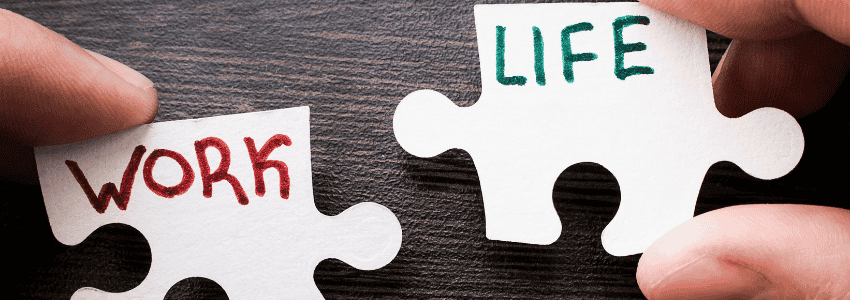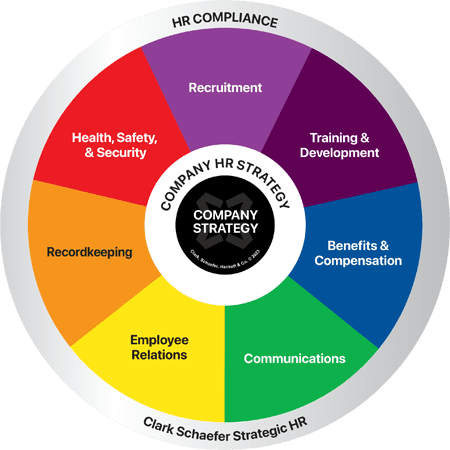Mental Health Concerns in the Workplace
Last Updated on July 26, 2022 / Benefits & Compensation, Health, Safety & Security, HR Strategy

In today’s chaotic environment, many American workers have been searching for ways to cope with the “new normal.” Between the pandemic, civil unrest, a divisive and contentious election, and frequent changes in their day to day life, it’s no surprise that mental health concerns in the workplace are on the rise. What impact can your employees’ mental health have on your organization?
In a recent study of 12,000 employees conducted by the Boston Consulting Group, individuals with better mental health were about two times more likely to maintain or improve their productivity when compared to those who were experiencing worse mental health during the pandemic. When surveyed about their mental health needs, TELUS International found that roughly 80% of workers would quit their current role if a new position provided more support for their mental health needs.
In this unique moment of increased remote work, additional challenges have presented themselves. In that same study, four out of every five workers indicated that they found it difficult to separate their work life and home life when working remotely due to the pandemic. Between the longer days and later hours resulting from a lack of structure when working from home, the mental strain led to an inability to maintain a positive work-life balance. This trend can be very difficult to sustain on a long-term basis, eventually impacting employee productivity and the quality of their work.
So how can HR and business leaders partner together in this remote/hybrid work environment? The same TELUS survey allowed employees to voice the changes they would most like to see implemented.
Encouraging the Use of PTO
Roughly 97% of those surveyed believed that taking vacation days is important to their mental health. In fact, over half of those surveyed have taken a “mental health day” since the pandemic began. Without the ability to travel or get away for vacation, employees may find themselves hesitant to take time off. Leaders should encourage the use of available PTO to disconnect, recharge, and relax – even if it’s within their own backyard.
Creating Flexible Scheduling (Without the Extra Hours)
Nearly nine out of every ten respondents agreed that a flexible work schedule would positively impact their mental health. This would allow employees to take mental breaks during the day, catering to children’s school schedules and family needs while reducing the guilt associated with “not being available.” When implemented correctly, this gives employees a feeling of control, reduces turnover, and boosts morale.
Provide Professional and Personal Interaction
Many employees would benefit from additional coaching or “reach outs” through the week from their managers or leaders. By connecting up and down the ladder and across departments, these unstructured check-ins can allow employees to fill the social gaps they lack from the isolation that naturally comes with remote work. In fact, many businesses have also implemented virtual “happy hours” to have their team gather for social interaction. Be sure to strike a careful balance here to avoid “Zoom Fatigue” by bombarding each other with video calls and check-ins.
Implement Telehealth Initiatives
There has been an increased demand for remote counselors or therapy sessions. In fact, the American Psychology Association has indicated that telehealth counseling can be just as effective as in-person counseling especially for younger generations that are used to using technology. It also allows for easier scheduling, lower costs, and a more private environment than the traditional face-to-face setting. Connecting employees to resources that provide this kind of remote support can allow individuals to work through their stress and develop coping mechanisms with trained professionals.
The COVID-19 pandemic has increased the ongoing conversation around mental health and highlighted the importance of taking care of ourselves, both in mind and in body. HR professionals and business leaders have an opportunity to make a positive impact on their lives and the health of their employees by building bridges for interaction, implementing mental health initiatives, and guiding employees to utilize the resources they have at hand. Clark Schaefer Strategic HR (CSSHR) created this extensive compilation of mental health resources as an easy-to-use reference for employers to support the mental wellbeing of their employees. By encouraging frequent conversations, utilizing available resources without attaching stigma, and establishing positive practices surrounding mental health, businesses can see themselves and their employees through these uncertain times with success.
Your employees face challenges every day. We can help you to ensure that your company policies and benefits best support your employees’ overall well-being. Visit our Benefits and Compensation page or our Health, Safety, & Security page to learn more. Or, better yet, contact us.












